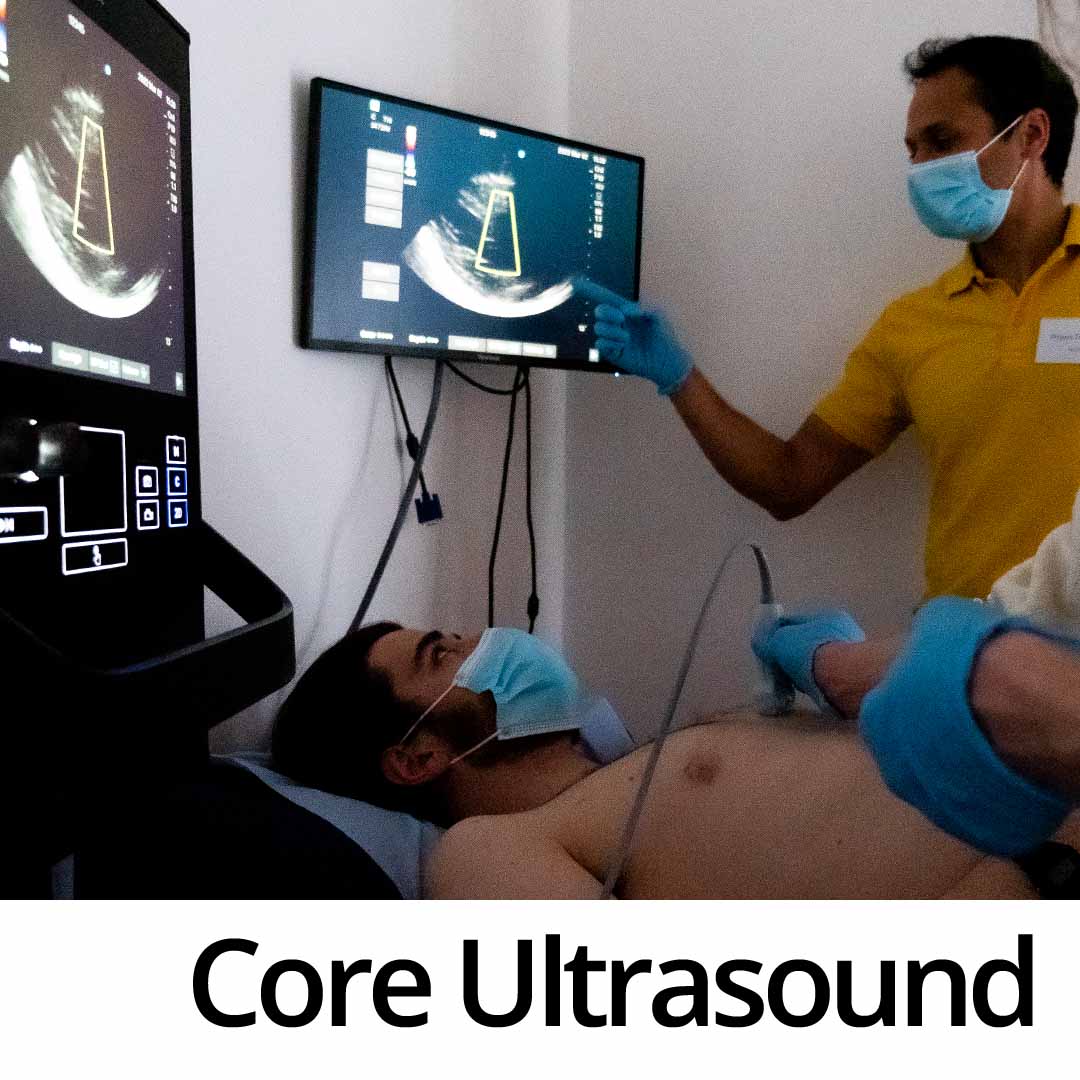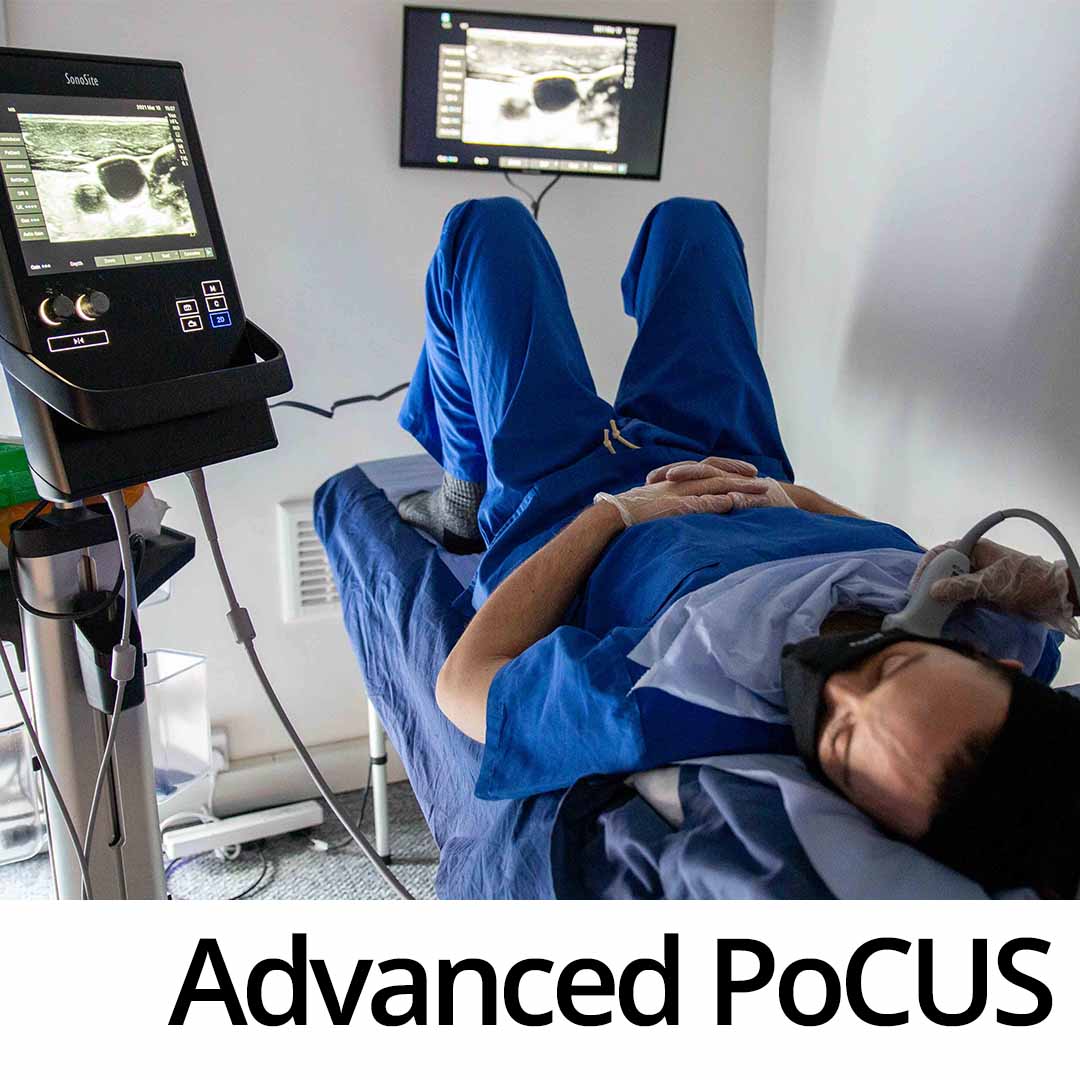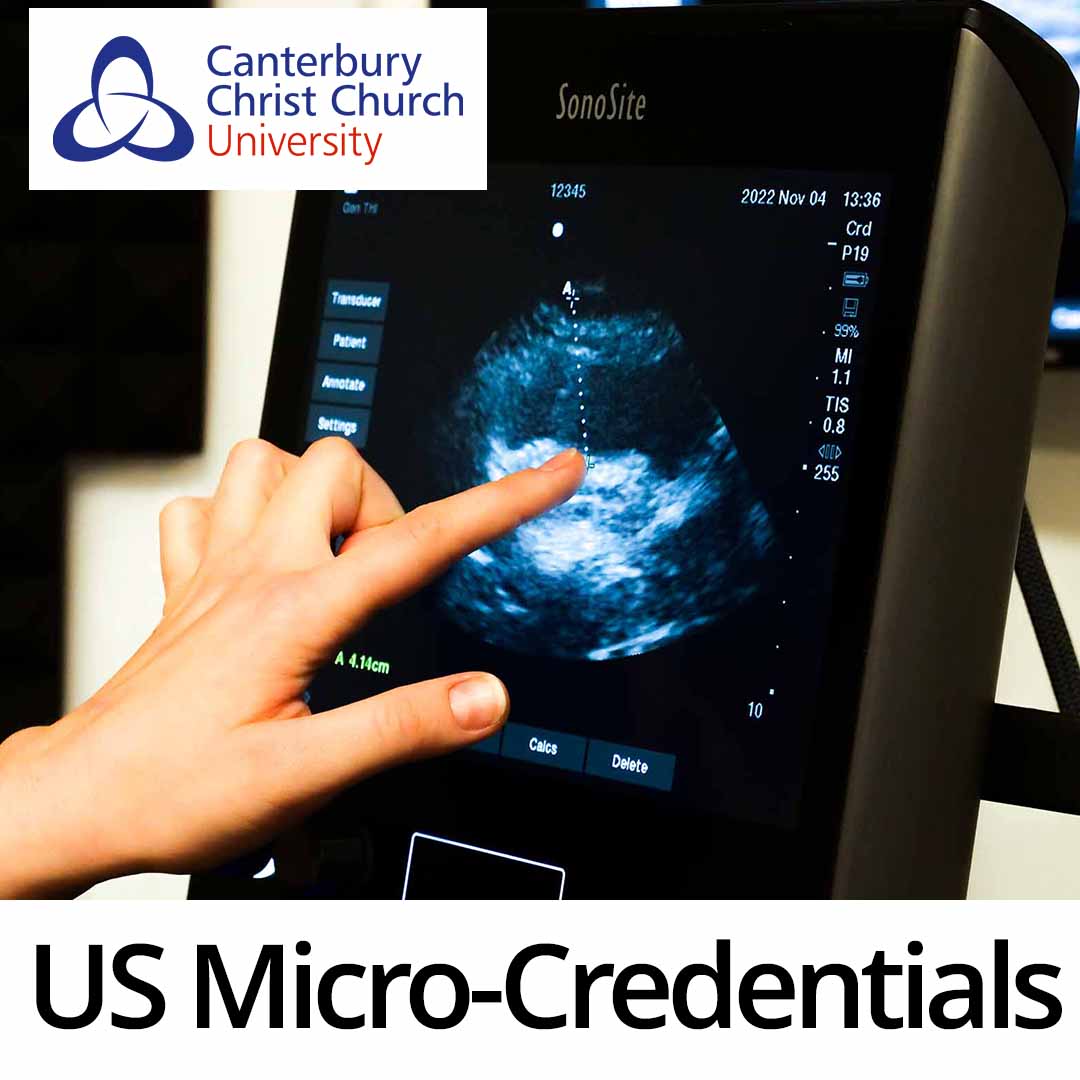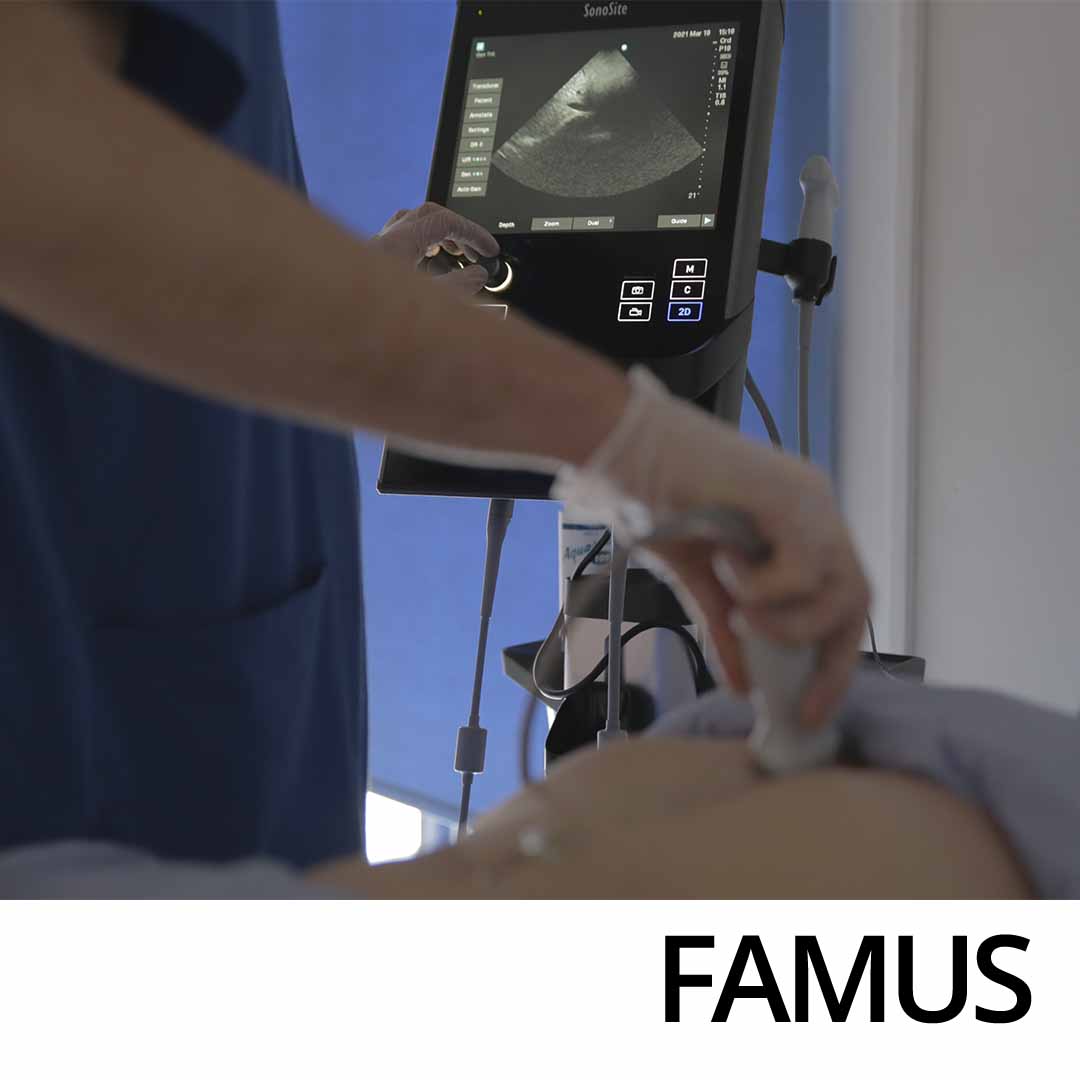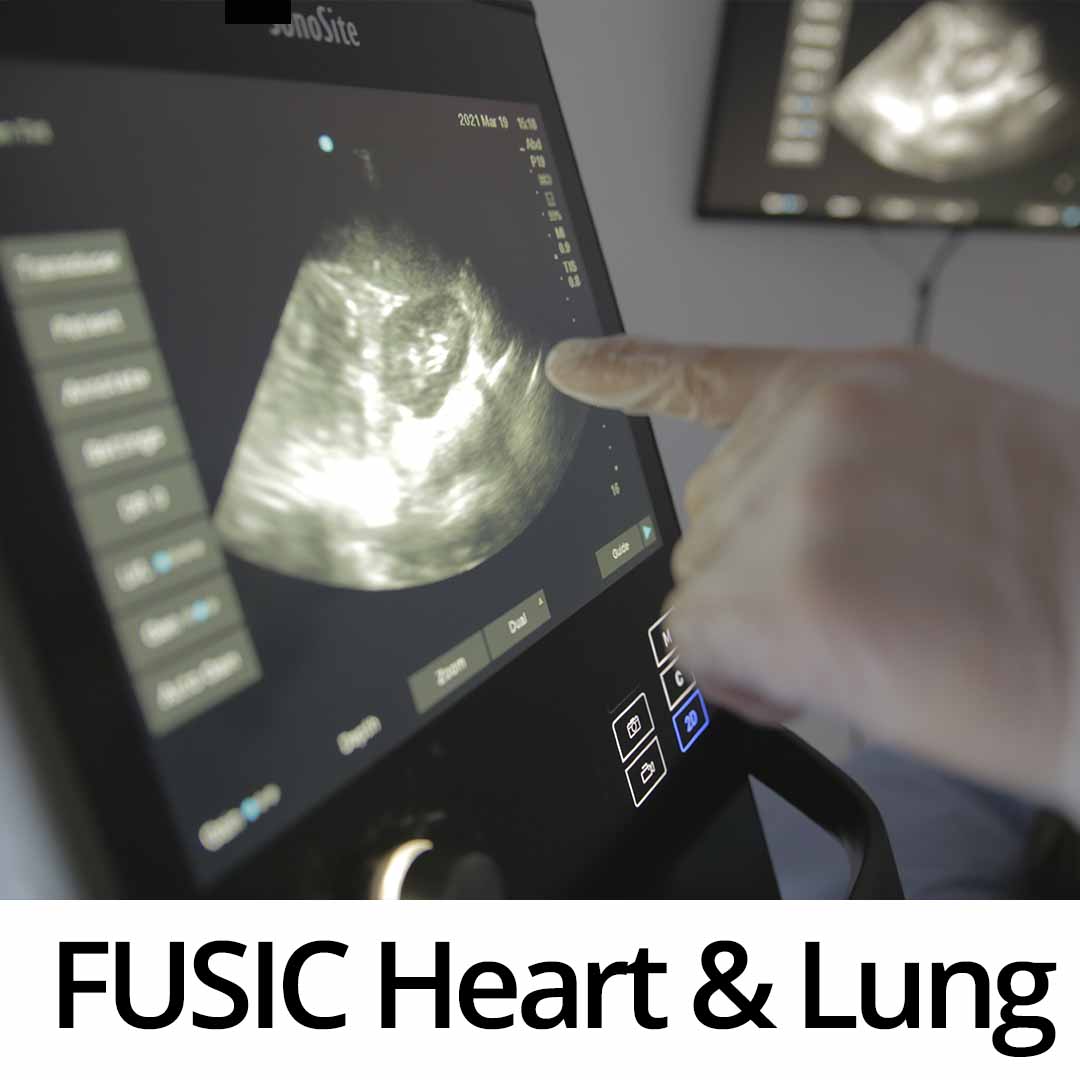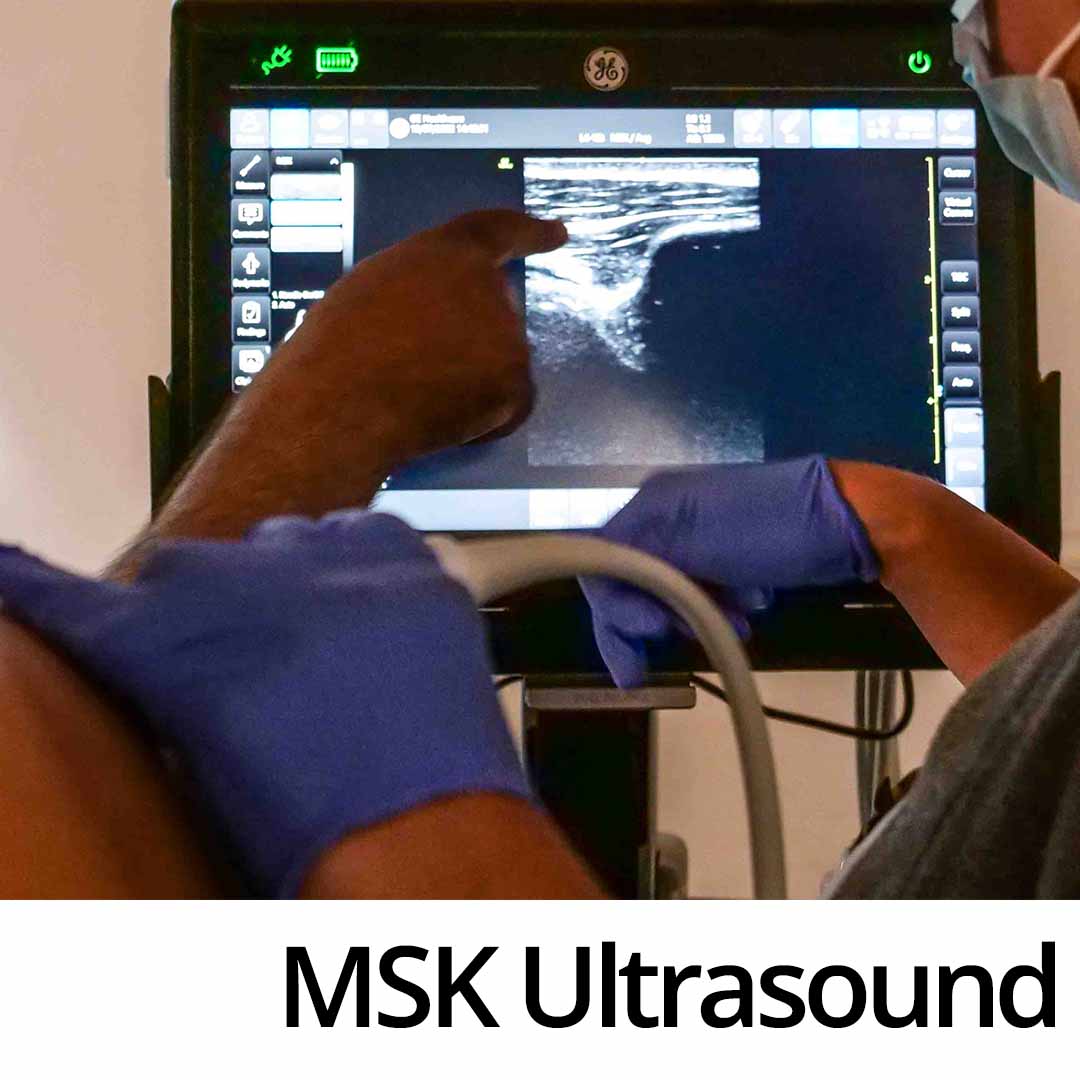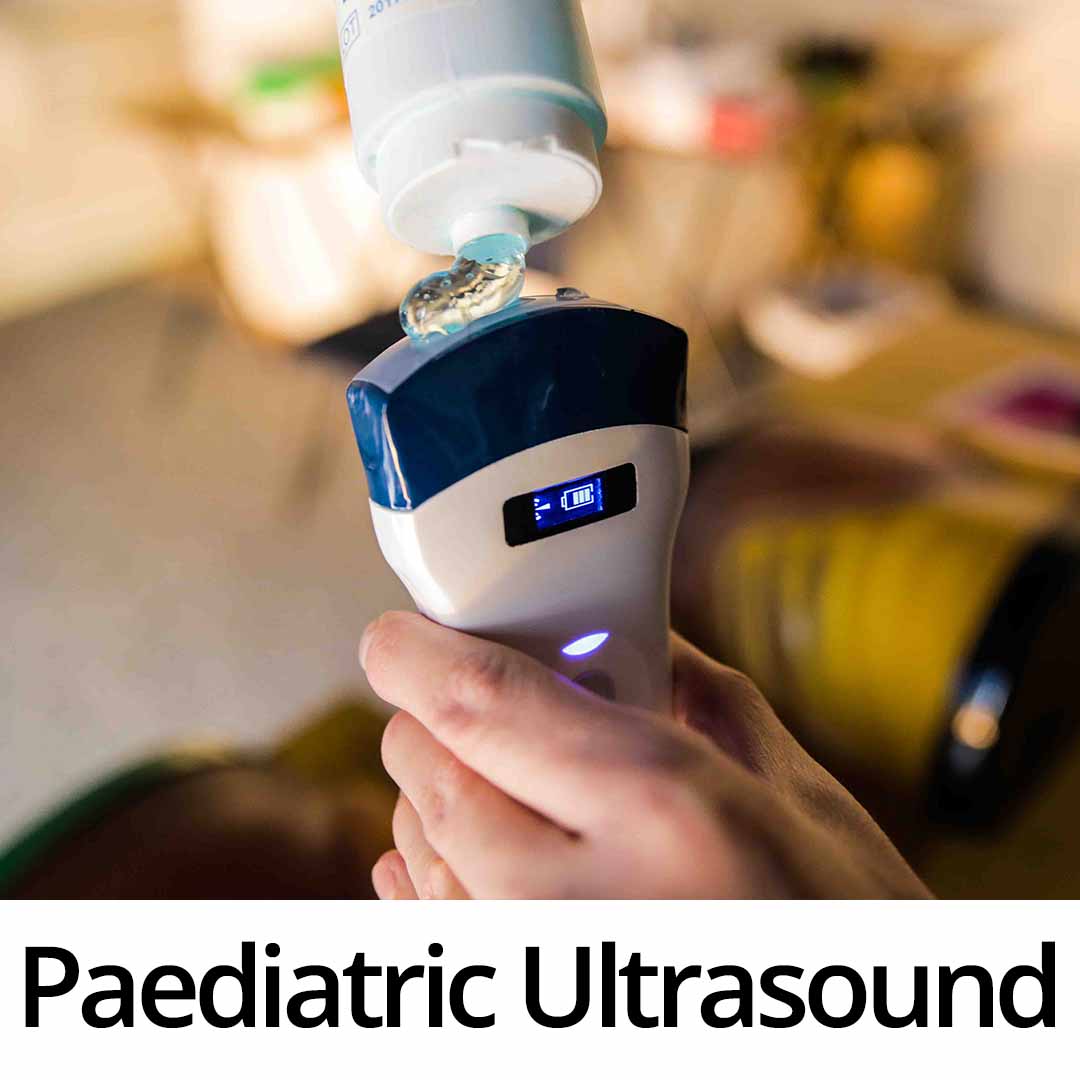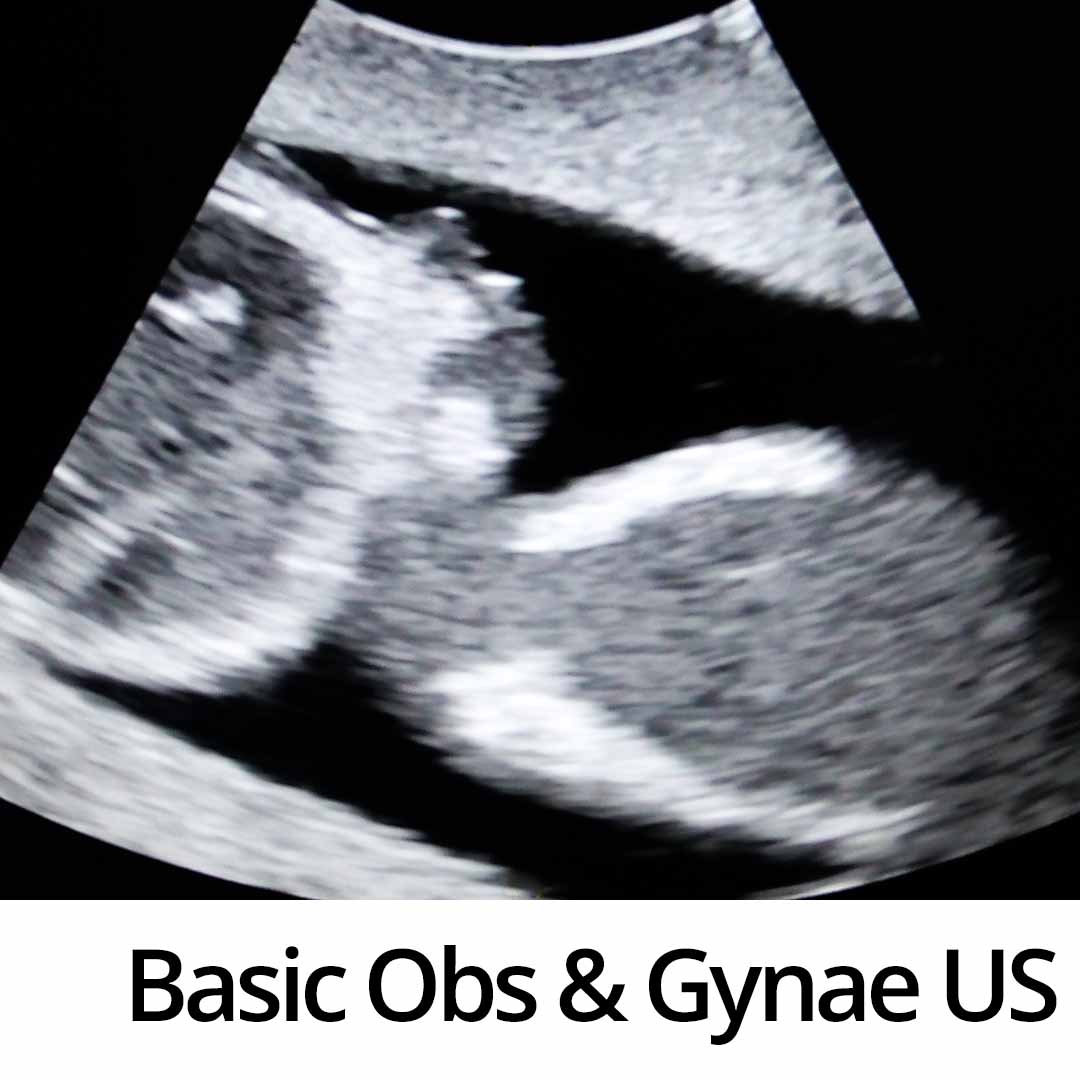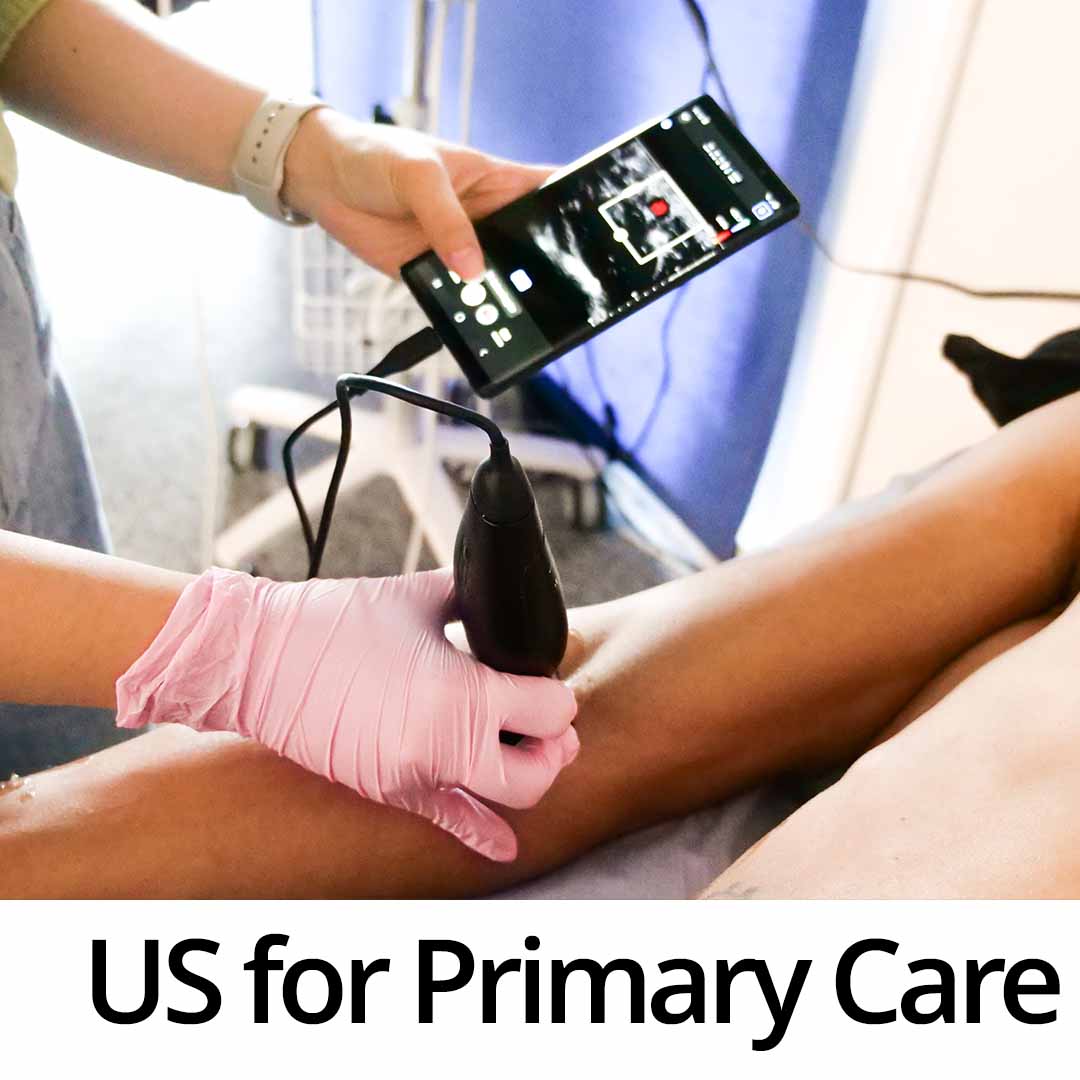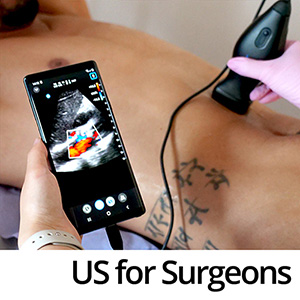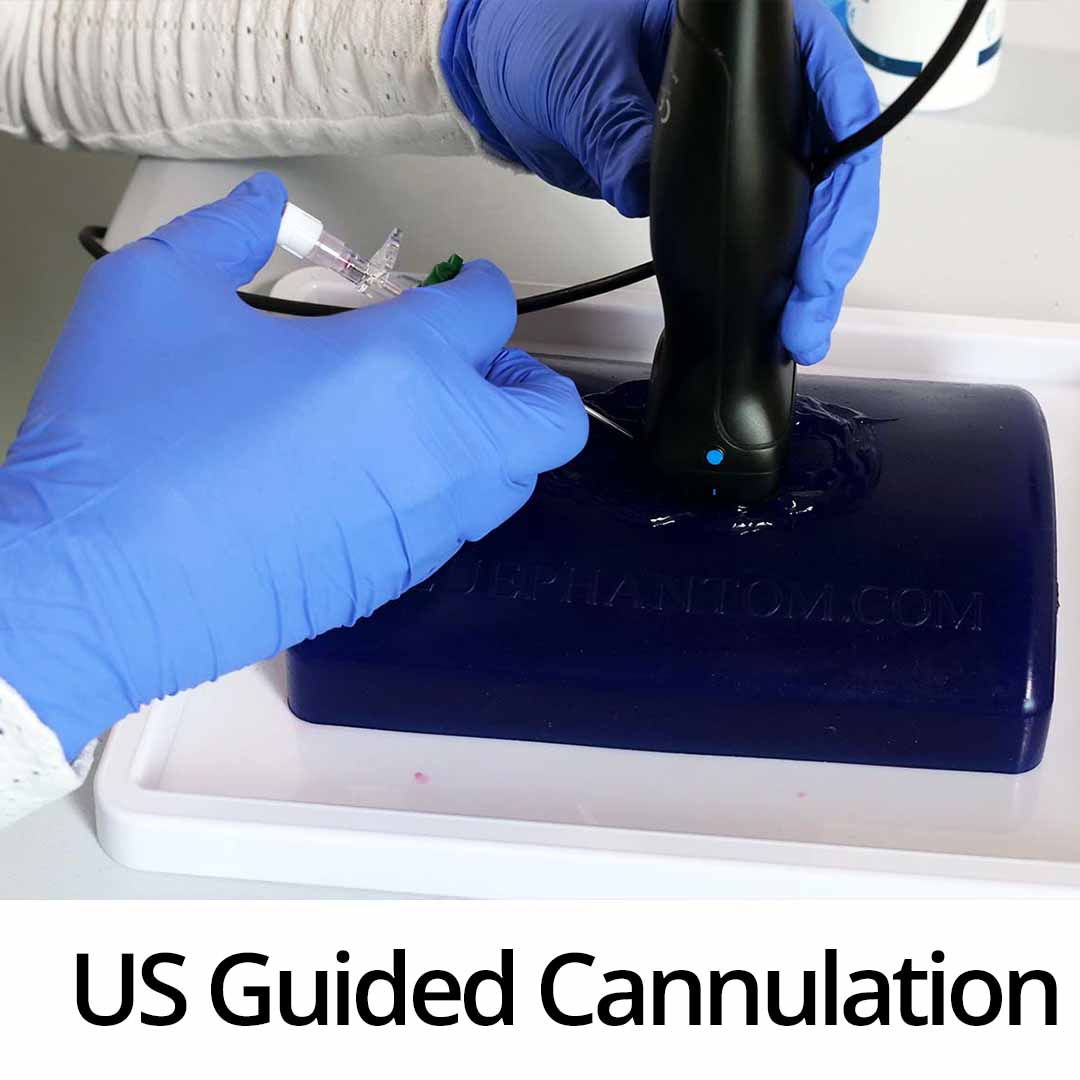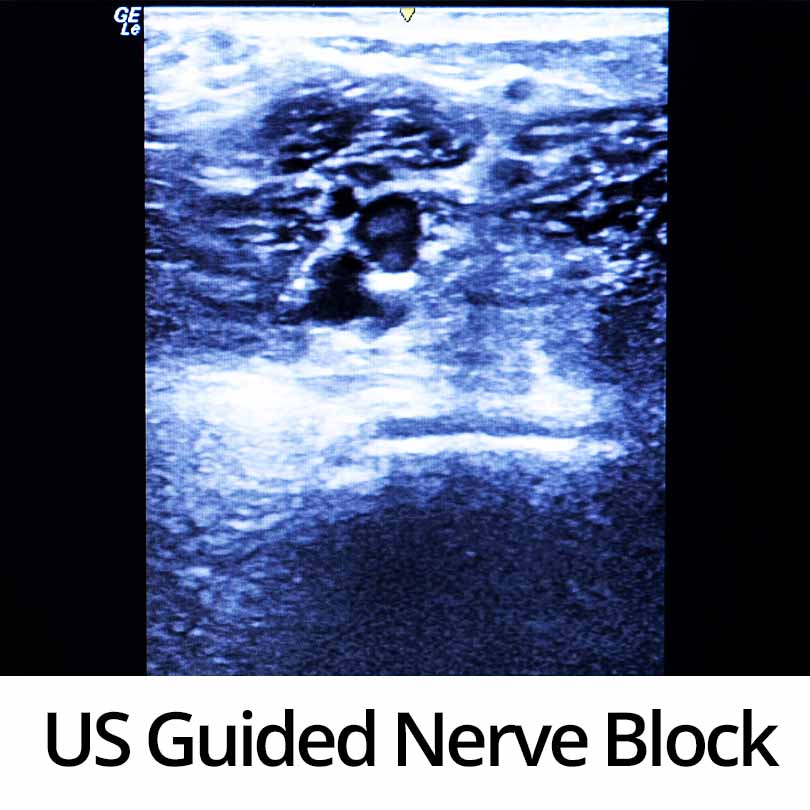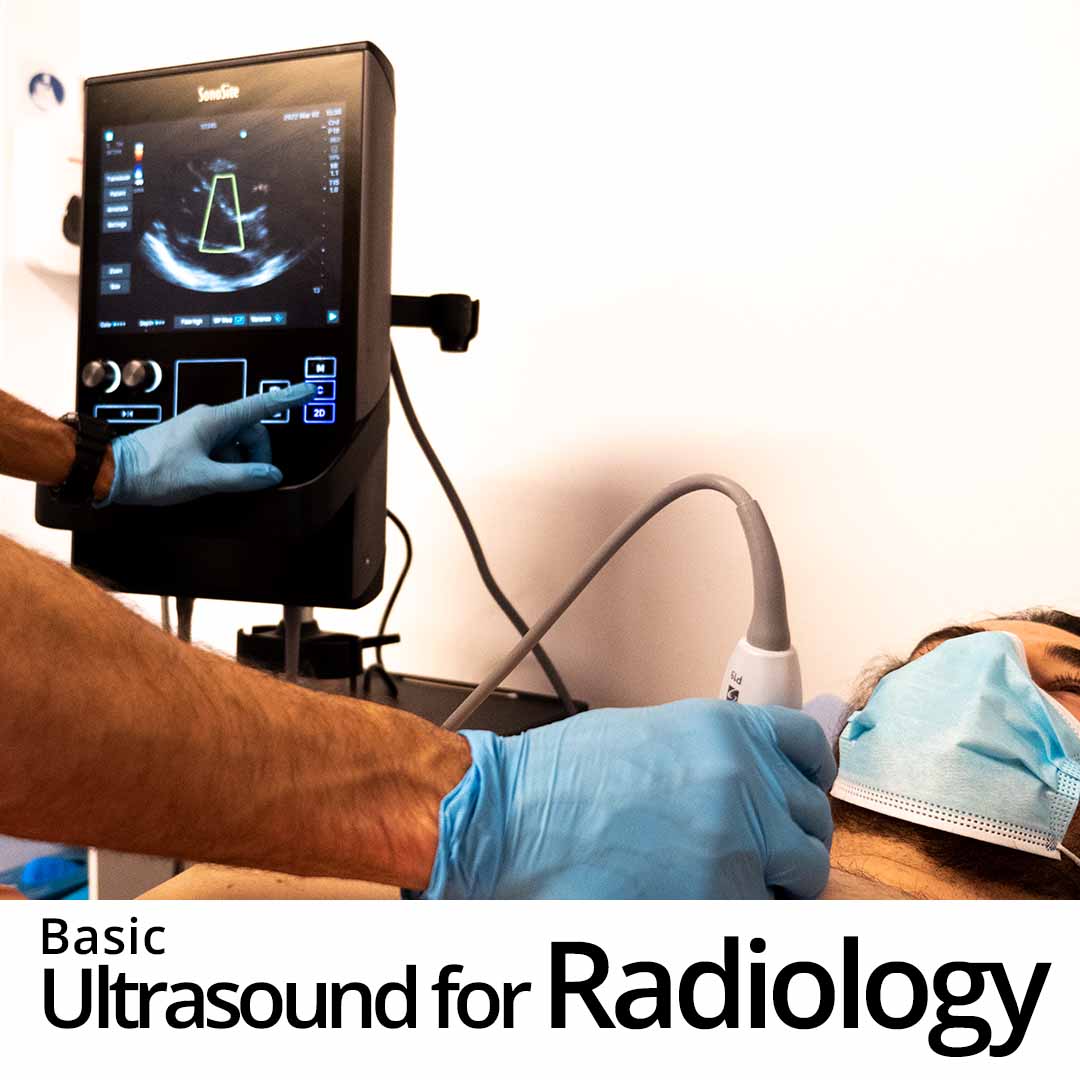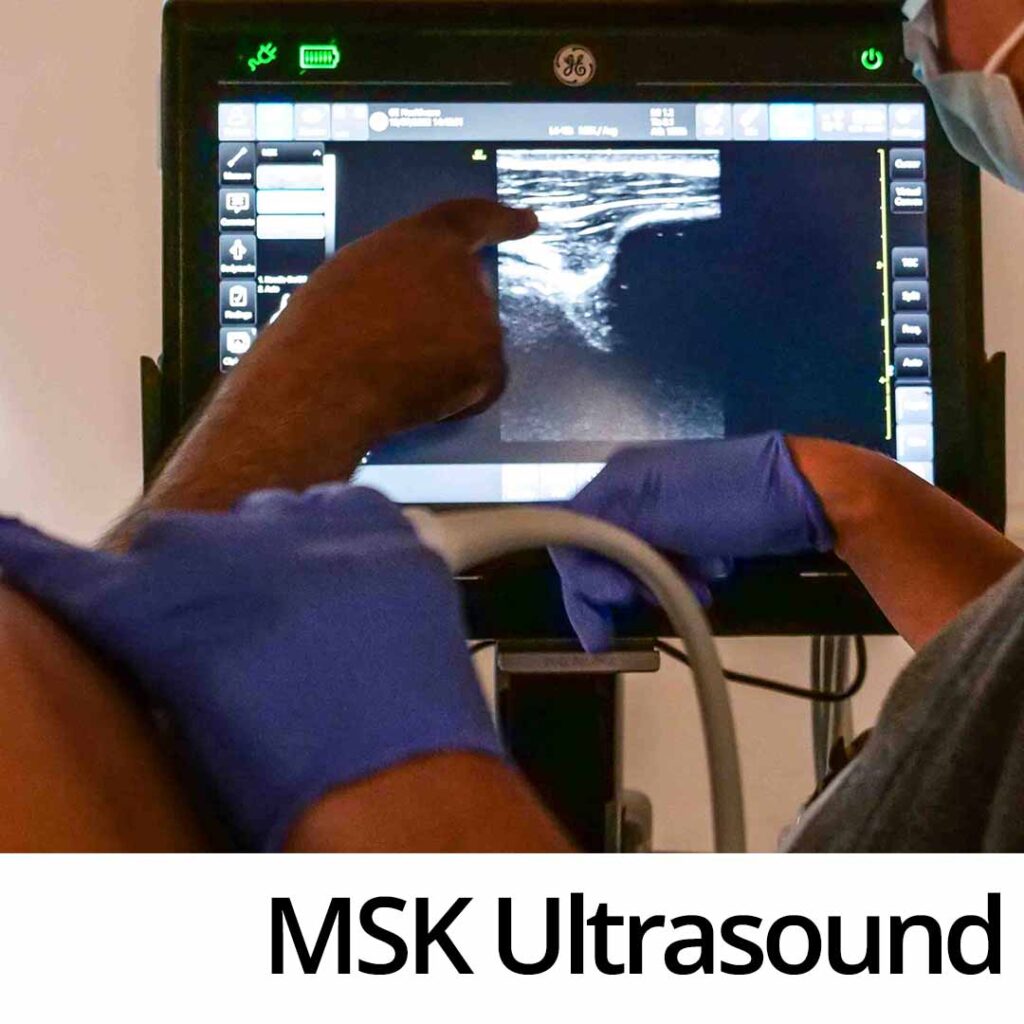Our PoCUS Courses
Find out about Point-of-Care-Ultrasound and the Practical Ultrasound Courses we offer.
19 years of experience in teaching RCEM courses
17 000 clinicians have taken our courses
4.9 out of 5 is our average Google review score
What is PoCUS (Point-Of-Care Ultrasound)?
Point-of-care is a phrase that is often used for equipment which has been positioned near the patient rather than in a separate part of the hospital. For example, we have point-of-care blood test devices which can save time in getting urgent blood tests results. So, Point-Of-Care Ultrasound means that the ultrasound is available where patients are assessed by clinicians so that quick decisions can be made without needing to send the patient to a separate part of the hospital, such as the Radiology Department.
Our Point-of-Care Ultrasound Courses
Our Point-of-Care Ultrasound (PoCUS) courses cover the Core and Intermediate Ultrasound curriculum for the Royal College of Emergency Medicine, as well as other PoCUS courses for emergency settings, including FAMUS and FUSIC Heart.
All our Ultrasound courses are facilitated by a large faculty of practising ultrasound clinicians and are heavily focused on scanning practice, with healthy volunteers available for normal scanning and advanced simulators for pathology.

Why is PoCUS Beneficial to ED Doctors?
There are many situations where ultrasound can enable an important clinical decision to be made immediately. Examples include measuring the size of the abdominal aorta, looking for free fluid in the abdomen, choosing a site to calculate a vein or to drain a pleural effusion. The list of decisions where point-of-care ultrasound can help is growing all the time, with important recent applications being the lungs, heart, joints, eyes, tendons and more.

What is the difference between Bedside Ultrasound and PoCUS?
PoCUS specifically refers to decision-focused ultrasound. In other words, using ultrasound to make a specific decision rather than in a descriptive way. The skills needed for PoCUS are easier to learn than the more extensive skills of diagnostic ultrasound. PoCUS skills can be learnt, and applied, one skill at a time. For example, many clinicians use point-of-care ultrasound just for vascular access. However, there are so many other valuable ways of using PoCUS that most expert bodies are expanding their lists of recommended skills.

Who are PoCUS courses suitable for?
Specialties in which the use of PoCUS is most established include Emergency Medicine, Intensive Care, Chest Medicine, Acute Medicine, Obstetrics and Gynaecology, Anaesthetics and some surgical specialties, however there is interest in point-of-care ultrasound in many other specialties including Paediatrics, General Practice and a wider range of surgical specialties.
In addition, many clinicians other than doctors are now using PoCUS. This includes Paramedics, ACPs, ENPs, Physiotherapists, and many others. As many of these clinicians will continue in the same area of work for some years, these clinicians can be a valuable source of PoCUS skills within clinical settings.

What PoCUS certifications are there?
The PoCUS skills needed by clinicians working in different specialisms and areas often overlap. For example, vascular access skills are valuable to the majority of PoCUS users. However, other PoCUS skills are more important to some specialisms than others; intensivists will find haemodynamic assessment more useful than most other clinicians will, for example.
The result is that there are a range of different certification processes for different specialisms, as well as more generic training and certification. Well known certification processes include FUSIC (Focused Ultrasound in Intensive Care), FAMUS (Focused Acute Medicine Ultrasound) and the certification required by the Royal College of Emergency Medicine for Emergency Medicine Trainees.
For cardiac ultrasound the leading accreditation programmes are those run by the British Society of Echocardiography.
There are also university-based certificates, such as PG Certs, PG Diplomas and MSc.
More on Our PoCUS Courses
Our Core Emergency Ultrasound (Level 1) course covers the required areas of the RCEM curriculum at introductory and intermediate levels.
Our Advanced PoCUS (Level 2) Course explores ultrasound applications beyond the Core RCEM curriculum.
Our FAMUS course is approved by the Society for Acute Medicine and covers those areas required for accreditation.
Our FUSIC Heart & Lung course has all the knowledge and practical skills you need for your FUSIC accreditation.
Our Primary Care Ultrasound Course is tailored to the most typical needs of GPs. However, other clinicians involved in primary care who are interested in ultrasound, including physiotherapists and nurses, will also find it useful.
The Basic Ultrasound for Paediatrics course is intended to provide a strong foundation in the applications of PoCUS in the care of children in acute and emergency settings.
Our Musculoskeletal Ultrasound course provides an introduction to how ultrasound can help with the assessment of soft tissue injuries and infections in emergency medicine.
Our Basic Ultrasound for Radiology Course is matched to the new Royal College of Radiologists (RCR) curriculum for radiology training and requires no prior experience of ultrasound.
Our Basic Ultrasound for Surgeons Course is designed to provide surgeons with basic core knowledge and skills in point-of-care ultrasound use.
Our basic Obstetrics and Gynaecology Ultrasound course is intended for those looking to start out using ultrasound in gynaecology and early pregnancy.
Our Ultrasound Guided Cannulation course will help you improve your cannulation skill set by fixing common errors and teaching new skills, like ultrasound-guided arterial line placement.
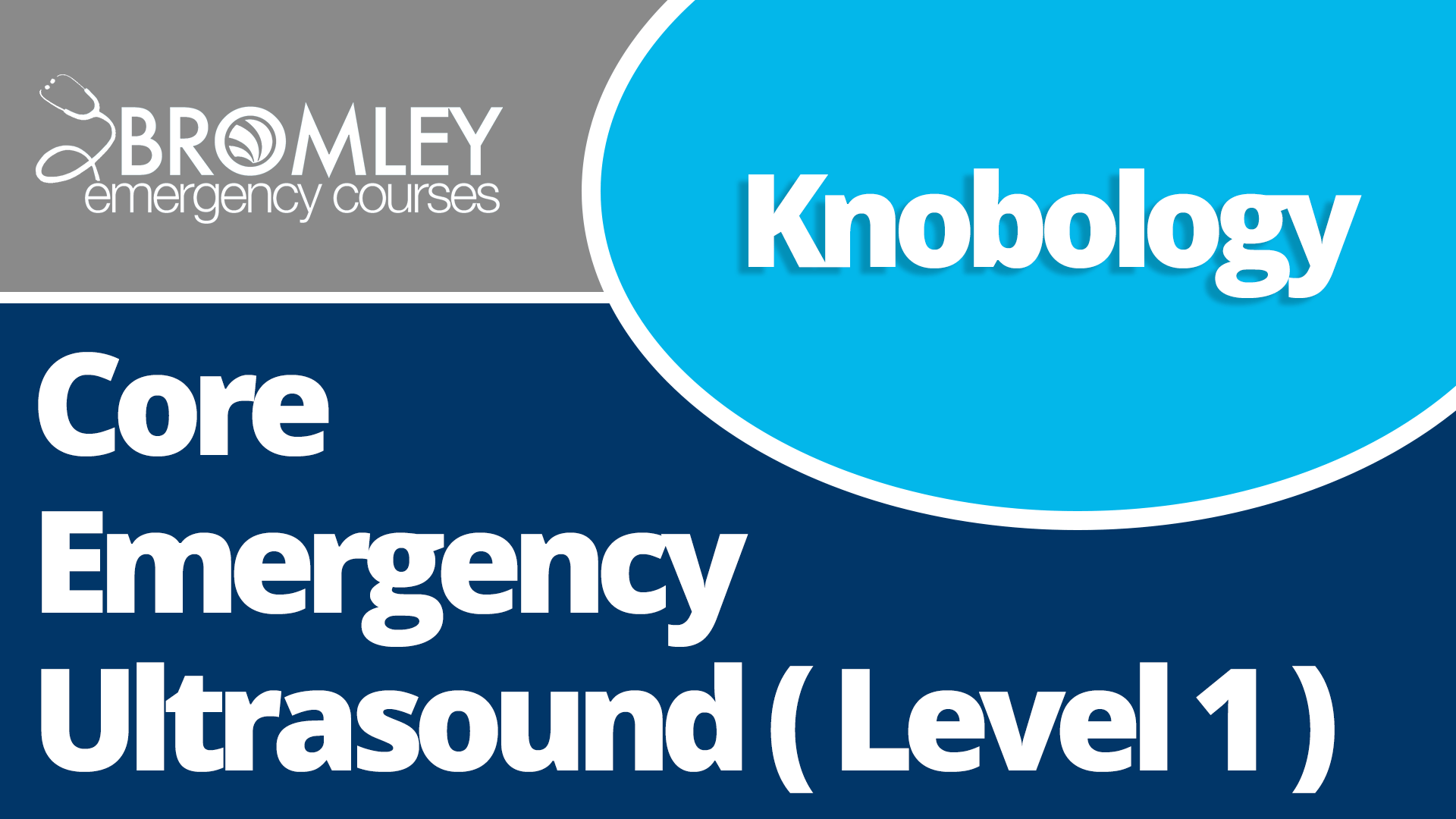
Sign up and get a free PoCUS video and a quiz on Knobology
Enter your info below to access the free Core Emergency Ultrasound (Level 1) video and quiz.
*By proceeding you may be contacted via email with updates on courses and events by Bromley Emergency Courses. You may unsubscribe from these communications at any time. We will never share your details with 3rd parties and will only use your email to send you information about our upcoming courses and other offers.


